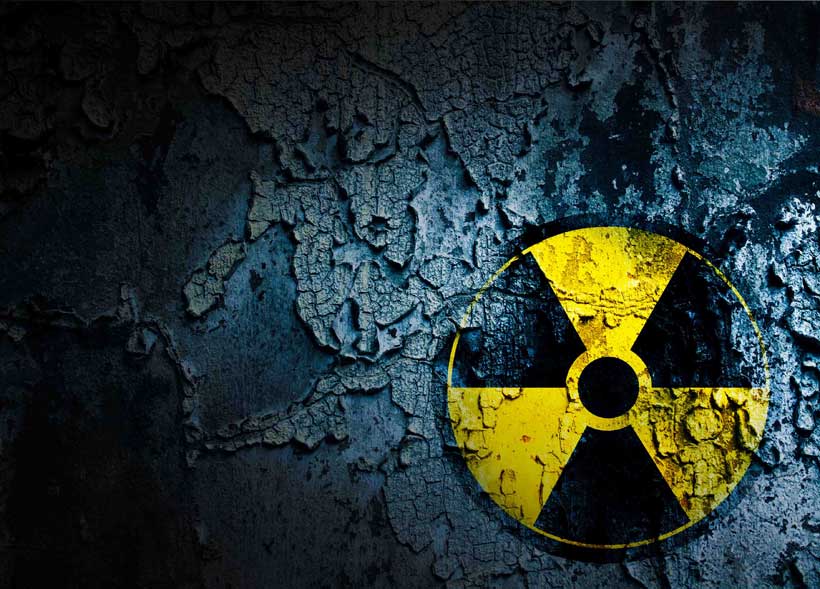The nuclear non-proliferation regime (NPR) offers access to nuclear technology for peaceful purposes and prevents states to use it for making nuclear weapons. During the Cold War, the NPR limited the military-purpose proliferation of nuclear technology and regulated its peaceful uses under the provisions of IAEA safeguards. After the disintegration of the USSR, newly established states like Ukraine disarmed existing stockpiles of USSR’s nuclear weapons in exchange for civilian nuclear cooperation from the international community due to strong enforcement of non-proliferation norms. However, in the contemporary geo-political structure some of nuclear developments aimed at establishing new security matrix in the Asia-Pacific are creating challenges for the NPR and global peace and stability.
It is important to analyze some agreements which erode the NPR. The Indo-U.S. nuclear deal tops the list. While the nuclear deal has unveiled a new balance of power equation in the Asia Pacific, it has caused irreparable damage to Nuclear Non-Proliferation Treaty (NPT). The U.S., a de jure NPT Nuclear Weapon State (NWS), has entered into an agreement on nuclear cooperation with India, a non-NPT member, by going beyond the normative framework of the regime.
To implement the “exceptional” deal, the U.S. amended its domestic law by adopting the Hyde Act in violation of the US Atomic Energy Act of 1960. Moreover, the Nuclear Suppliers Group’s (NSG) waiver granted to India, reflects the dual standard of the NSG which was created in the aftermath of Indian nuclear explosions in 1974. However, India’s nuclear safety and security credentials fail to meet the minimum standards set by the IAEA.
Similarly, AUKUS, a new long-term U.S.-led arrangement designed to provide nuclear-powered submarines to Australia with Britain’s support, is again violative of the NPR. UK has reportedly expressed interest in including India, a non-NPT nuclear armed state, in AUKUS. It is pertinent to mention that Article III of the NPT only mandates transfer of nuclear technology for peaceful purposes under IAEA’s robust nuclear safeguards. Though naval nuclear propulsion comes under non-proscribed military activity, the IAEA does not have any mandate for verification of nuclear material that comes under such activity. Once a nuclear-power reactor is installed in the submarine, the provided material becomes part of non-proscribed military activity and IAEA loses its mandate for verification over such nuclear material.
Given the present arrangements, it will be difficult to ensure that the acquired technology will not be diverted towards military program. Brazil and Iran are already working on developing and deploying indigenous nuclear-powered submarines. There is even a debate in Indian policy making circles on leasing a nuclear-powered submarine from France with American political support.
Australia defends its case by referring to its exceptional non-proliferation record and argues that it has no intention to divert nuclear technology for the weapon program. However, the concerned parties contend that Australia has so far not signed the Treaty on the Prohibition of Nuclear Weapons (TPNW) and thus has equal proliferation potential. Meanwhile, the U.S. is trying to justify that AUKUS pact does not undermine the non-proliferation norms – but inevitably, it has set new daunting precedents for the regime.
These new developments have the potential to produce long-term geo-strategic implications for other regions, predominantly for South Asia, where the U.S.-India nuclear collaboration has already imbalanced the deterrence and arms race stability equation by supporting India’s vertical proliferation. Along with that, despite being one of the countries that does not adhere to Comprehensive Test Ban Treaty (CTBT), India is signaling for hot testing now, under America’s political umbrella. If India does so, other regional nuclear states will be compelled to follow suit mainly for restoring regional strategic stability.
This might affect the restraint of nuclear non-proliferation regime that maintains rules over hot testing in other regions, especially the Korean Peninsula. India’s host testing might provide a motivation and rationale to North Korea for instance, which awaits nuclear testing to update its nuclear weapons stockpiles. Thus, any such actions by India will lead to a chain reaction of nuclear weapon’s testing around the globe, subsequently affecting the international norm regarding nuclear weapons testing.
It is debatable whether the contemporary international political order is unipolar or has shifted towards multipolarity. If the U.S. does not abide by the essence of NPR to the extent of exploiting technical gaps in the regime’s operational mechanism for supporting its allies for political imperatives, other key states will be only left with the option of taking decisions premised on their own geopolitical interests. Resultantly, new avenues for arms race could develop among great powers affecting the already fragile global peace and stability.
Exacerbating nuclear disorder will be the new nuclear normal for the foreseeable future because political interests of major powers are influencing the global order. In addition, the ongoing trends of discrimination and exceptionalism could accentuate the apartheid of NPR. These trends can possibly undermine non-proliferation in the Asia Pacific and beyond. These actions could also lead to geo-strategic competition among great powers. They have already raised the possibility of nuclear catastrophe by undermining the decades long non-proliferation efforts.
Arrangements aimed at creating new security matrix in the Asia Pacific against China could enable short-term geopolitical imperatives. In the longer run, they are inevitably undermining non-proliferation regime and international security at large. The transfer of highly destructive and dual-use technology has been regulated in the past but unfortunately it seems difficult in the future. Non-proliferation is a global concern and the international community should adopt an indiscriminatory, multilateral and rule-based approach to strengthen non-proliferation regime and reduce grave threats for global peace and stability.


